If you’re an experienced diver looking for a new challenge, there are plenty of diving sites around the world that will test your skills and push your limits. From deep wrecks and underwater caves to strong currents and encounters with marine predators, these sites require not only technical proficiency but also mental toughness and careful preparation.
In this article, we’ll explore 7 of the most challenging diving sites that are reserved for experienced divers. Are you ready for an unforgettable adventure?
1-The Blue Hole in Dahab
The Blue Hole in Dahab, Egypt is one of the most famous dive sites in the world. It is a natural sinkhole that extends more than 300 meters deep and impressive coral reefs surrounds the place.
The crystal clear waters offer excellent visibility for divers, making it a popular destination for experienced divers and beginners alike.
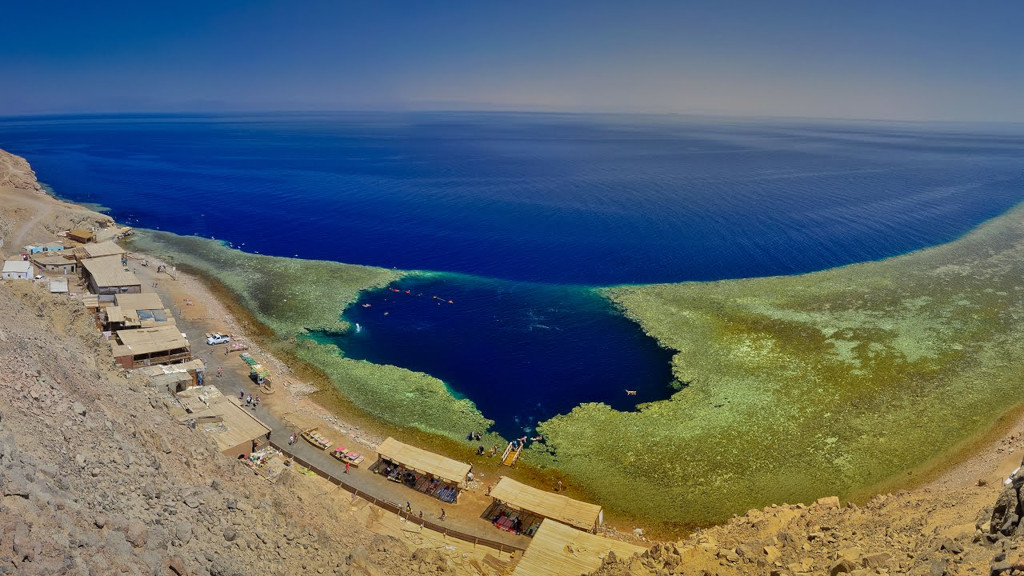
The arc
One of the most unique features of the Blue Hole is the “arch,” which is a natural underwater tunnel that connects the sinkhole to the open sea. This tunnel is a favorite among experienced divers who enjoy exploring its depths and the surrounding coral reef. However, due to the depth and potential dangers in this type of diving, the recommendation is that only for highly experienced divers try it.
The saddle
Another highlight of the Blue Hole is the “saddle”. It is a narrow strip of reef that connects the Blue Hole with the open sea. This is a popular spot for divers of all levels, as it is shallower than the arch. Even so, it offers a large amount of marine life to discover.
The Blue Hole is known for its stunning underwater scenery, including colorful coral formations, exotic fish species, and the occasional sighting of larger marine animals such as sharks and sea turtles. The deep blue waters and unique underwater topography make this dive site an unforgettable experience for any diver.
While Blue Hole is an excellent dive site, it is also famous for its potential dangers. Due to the depth and underwater currents, divers must take extra precautions and follow safety protocols. However, with proper training and guidance from experienced diving professionals, the Blue Hole is a must-see destination for any diver visiting Egypt.
2-The Thistlegorm shipwreck in the Red Sea, Egypt
The Thistlegorm wreck in the Red Sea, Egypt, is one of the most famous and well-known dive sites in the world. The Thistlegorm was a British merchant ship that was sunk by German bombers during World War II in 1941. She was carrying a cargo of war supplies, including ammunition, weapons, vehicles, and even a train, bound for Allied troops in Egypt.
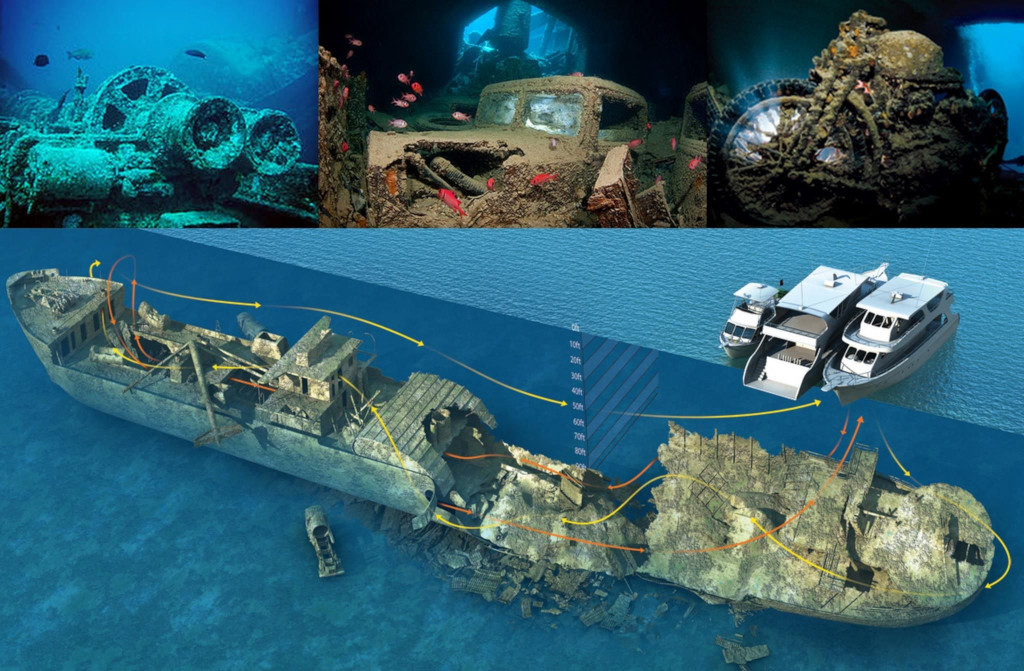
Today the wreck is a popular dive site attracting thousands of divers each year. However, due to the depth of the wreck and the need for penetration, the Thistlegorm requires advanced diving skills . The wreck lies at a depth of around 30 meters (100 ft) and is silt and sediment are covering the site, making visibility difficult.
Diving in the Thistlegorm
To dive the Thistlegorm safely and effectively, divers must be trained in advanced diving techniques. Example deep diving, wreck diving and penetration diving.
They must also carry specialized equipment, including underwater flashlights, dive computers and reels, which are essential for navigating the dark and confined spaces within the wreck.
Thistlegorm is a challenging and rewarding dive site, offering divers a unique insight into history. However, it is essential to approach this dive site with caution and respect. It is a monument to the brave men and women who lost their lives during the war and a fragile ecosystem that needs protection.
Overall, Thistlegorm Wreck is a bucket list dive site for advanced divers looking for a challenging experience. With proper training, preparation, and respect, divers can safely explore this incredible piece of history. They will be able to discover the incredible marine life that has made it their home.
3-The Great Blue Hole
The Great Blue Hole is a dive site located off the coast of Belize in Central America. It is a huge underwater sinkhole measuring approximately 300 meters (984 feet) wide and 125 meters (410 feet) deep, and is surrounded by a coral reef that is home to a wide variety of marine life.
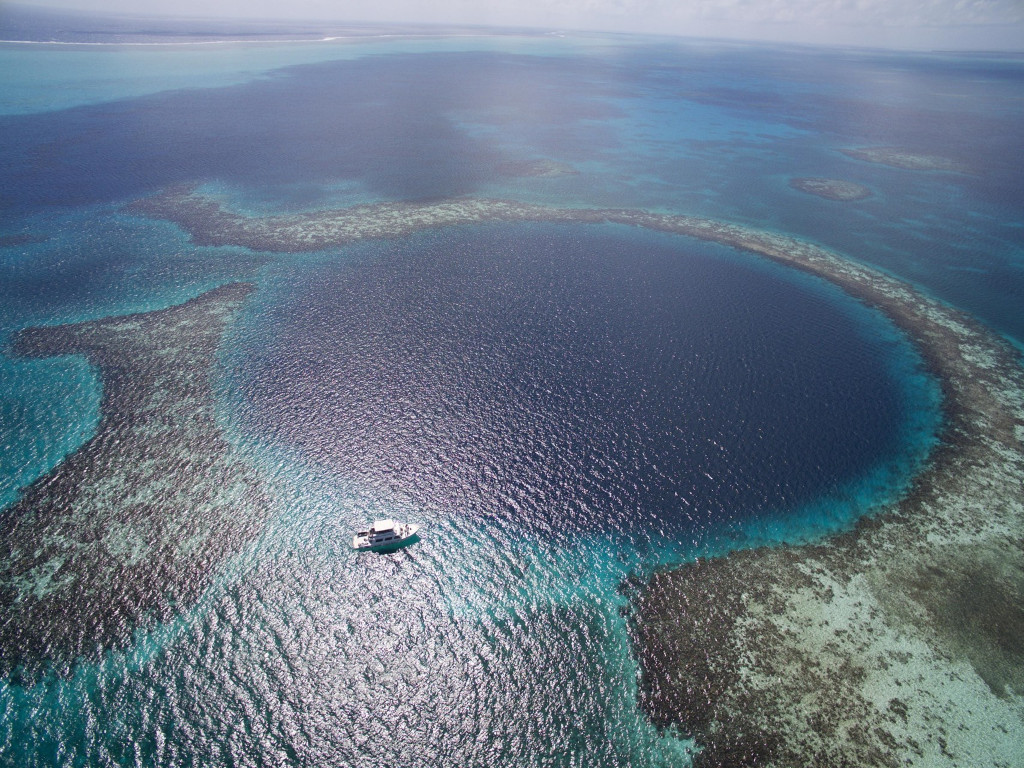
While the Great Blue Hole is a spectacular sight, it is also a challenging dive site that requires advanced diving skills. The site is famous for its depth and strong currents, and is often recommended for experienced divers only. Currents can be unpredictable and can change rapidly, so it is essential that divers have good navigational skills and the ability to handle unexpected situations.
Diving in the Great Blue Hole
To dive the Great Blue Hole safely and effectively, divers must be trained in advanced diving techniques. For example deep diving and drift diving.
4-The Yongala Shipwreck
The Yongala wreck is one of Australia’s most iconic and popular dive sites, located off the Queensland coast. The Yongala was a passenger ship that sank during a cyclone in 1911 and is now home to a wide variety of marine life, including sharks, rays and turtles.
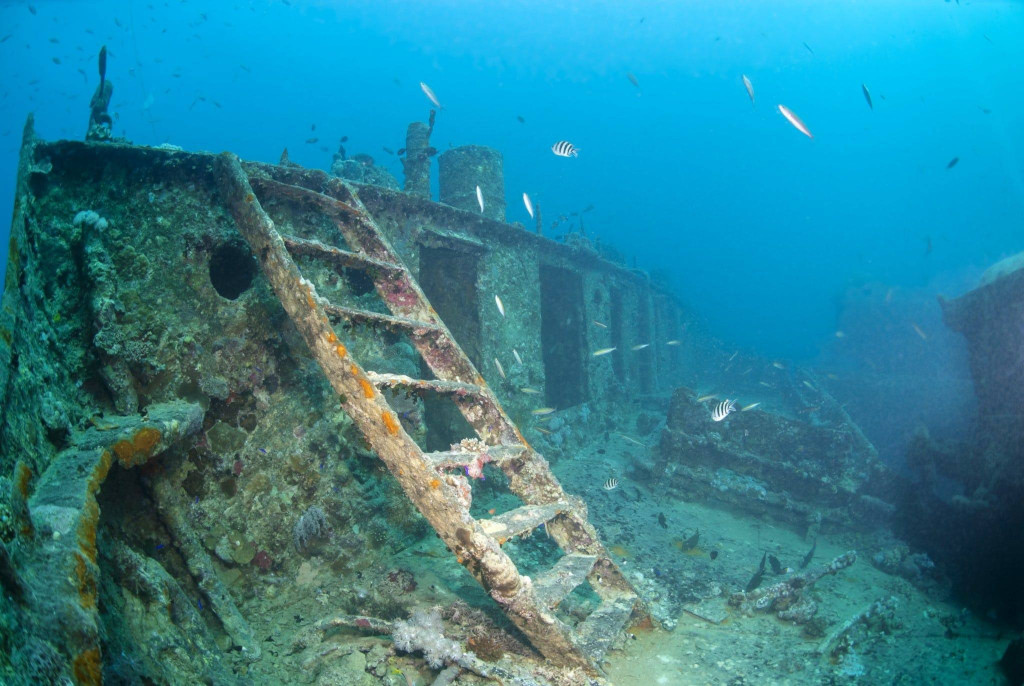
However, diving the Yongala wreck is not for the faint of heart. There are strong currents in the site. You will have to go deep to penetrate the wreck, making it a challenging dive requiring advanced diving skills and proper training.
The wreck lies at a depth of around 30 meters (100 feet), and the currents can be strong and unpredictable. Such a condition requires divers to have good navigational skills and drift diving experience.
Wrecking also requires penetration, which means divers must have training in techniques such as wreck diving, which involves navigating through confined spaces while maintaining buoyancy control and avoiding entanglement hazards.
Diving the Yongala Wreck
To dive the Yongala wreck safely and effectively, divers must take with them specialized equipment, including dive computers, underwater lights and reels, which are essential for navigating the dark and confined spaces within the wreck.
Despite its challenges, diving the Yongala wreck is a once-in-a-lifetime experience offering divers the chance to explore one of the most unique and fascinating dive sites in the world. With the proper training, preparation, and respect for marine life and the history of the wreck, divers can safely explore this incredible site and discover the amazing underwater world that has made it their home.
5-The Liberty shipwreck in Bali, Indonesia
The Liberty wreck in Bali, Indonesia is one of the most popular dive sites on the island. The wreck is the remains of a US Army transport ship that was torpedoed by a Japanese submarine during World War II. Today, it is home to an abundance of marine life, including reef sharks, octopus, and a variety of colorful fish.
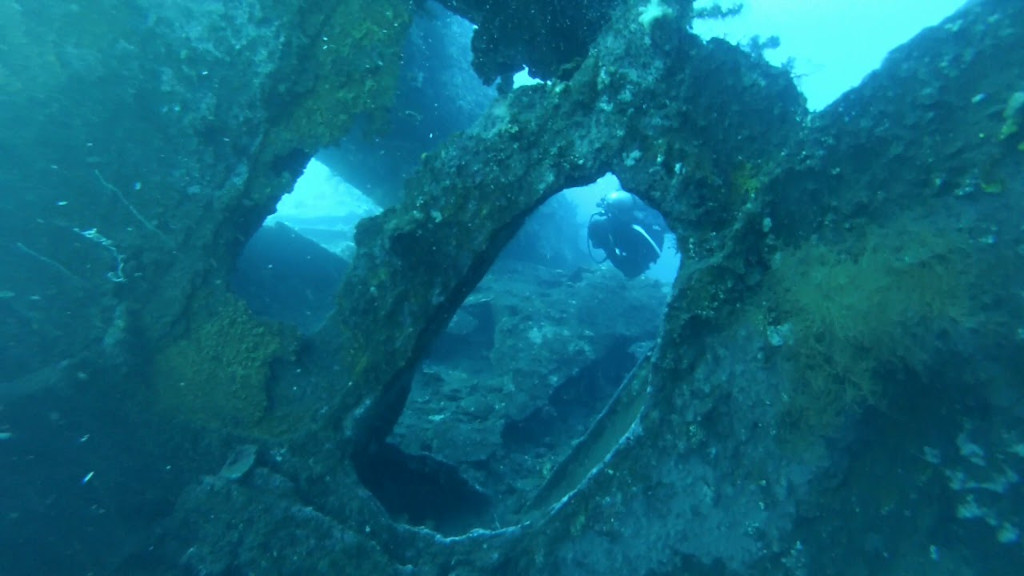
However, diving the Liberty wreck is not for inexperienced divers. The site requires advanced diving skills due to its depth, strong currents, and the need to penetrate the wreck. The wreck lies at a depth of around 30 meters (100 feet), and currents can be strong and unpredictable, requiring divers to have drift diving experience and strong navigational skills.
Wrecking also requires penetration, which means divers must have training in special techniques such as wreck diving, which involves navigating through confined spaces while maintaining buoyancy control and avoiding entanglement hazards.
Diving the Liberty Wreck
To dive the Liberty wreck safely and effectively, divers must carry specialized equipment, including dive computers, underwater lights, and reels, which are essential for navigating the dark and confined spaces within the wreck.
Liberty Wreck is a unique and rewarding experience, offering divers the chance to explore a fascinating part of history and discover the incredible marine life that has made it their home.
6-Blue Corner Wall in Palau
Blue Corner Wall in Palau is one of the world’s top dive sites and is a must-visit destination for experienced divers. The site is located off the coast of Palau, a small island nation in the western Pacific Ocean. It also has impressive coral formations, a diverse marine life and, above all, strong currents.
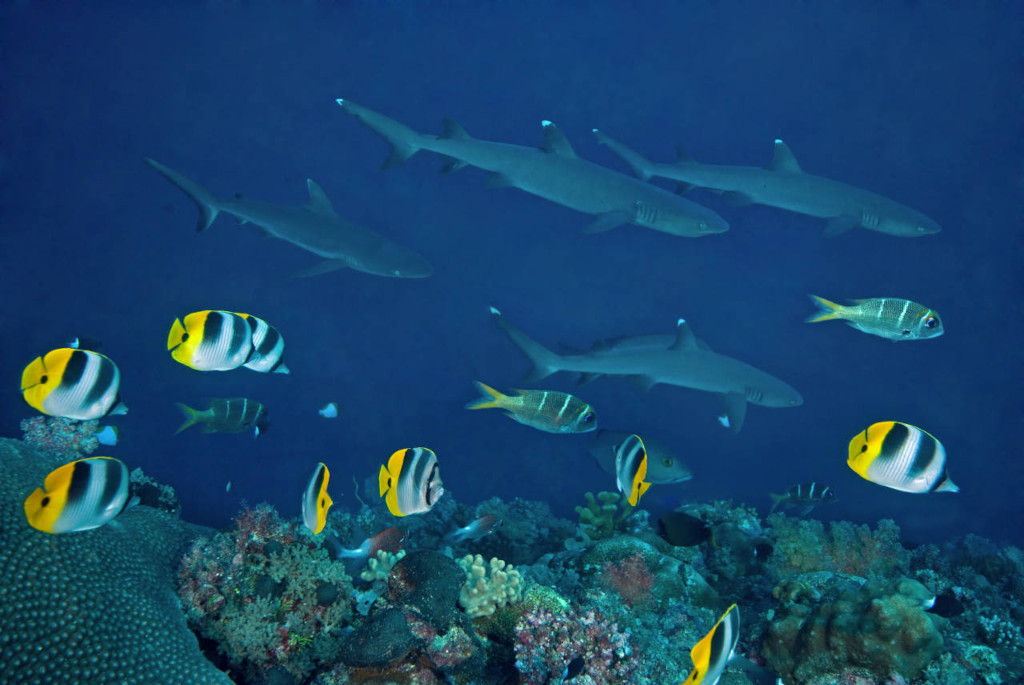
Diving the Blue Corner Wall is an exciting and challenging experience that requires advanced diving skills. The currents can be extremely strong and unpredictable, requiring divers to have drift diving experience and strong navigational skills. However, the currents also bring in a rich variety of marine life, including schools of barracuda, reef sharks, and even hammerheads.
The dive site is named for the corner where the wall meets the ocean, creating a unique upwelling of nutrient-rich water. This phenomenon attracts large schools of fish, which in turn attract predators such as sharks, making it an exciting place for divers to observe the natural interactions of marine life.
Diving in Blue Corner Wall
Divers must equip themselves with specialized equipment, including dive computers, underwater lights, and reels, which are essential for navigating the challenging underwater environment, to dive Blue Corner Wall safely and effectively.
7-The devil’s Pinnacle
Bajo del Diablo is one of the most popular dive sites in Caño Island, Costa Rica. This underwater pinnacle is home to a wide variety of marine life, including colorful shoals, tropical fish, rays, sharks, and turtles.
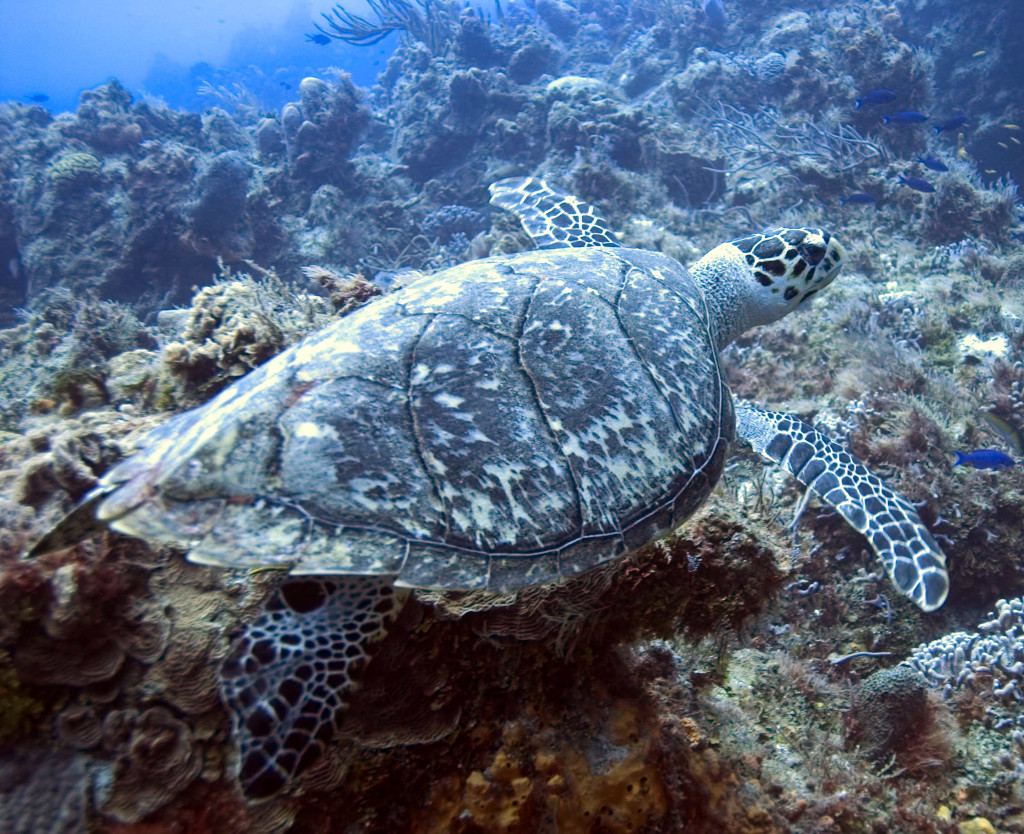
However, diving in El Bajo del Diablo is not for inexperienced divers. The site requires advanced diving skills due to its depth, strong currents, and changing water conditions. The depth of the dive site ranges from 15 to 40 meters (50 to 130 feet), making it suitable only for experienced divers who are comfortable with deep dives. Also, the currents at Evil’s Pinnacle can be strong and unpredictable. Such currents require divers to have drift diving experience and strong navigational skills.
Despite the challenges, diving Evil’s Pinnacle offers divers the opportunity to explore one of the most unique and impressive dive sites in Costa Rica. Vibrant coral formations cover the pinnacle, creating an underwater paradise that hosts a wide variety of marine life.
Devil’s Pinnacle Diving
Divers must equip themselves with specialized equipment, including scuba gear, underwater lights, and reels, to dive Devil’s Pinnacle.These are essential for navigating the challenging underwater environment.
This is one of the dive sites on Isla del Caño, which is located off the coast of the Osa Peninsula in Costa Rica. Isla del Caño is known for its crystal clear waters, incredible marine life, and numerous dive sites. It is an ideal destination for experienced divers looking for a unique and challenging diving experience.
With proper training, preparation and respect for marine life and the environment, divers can safely explore Evil’s Pinnacle and discover the incredible underwater world that has made it their home.
